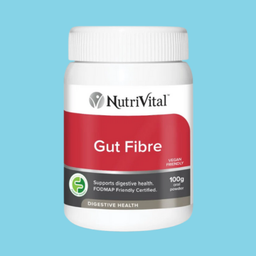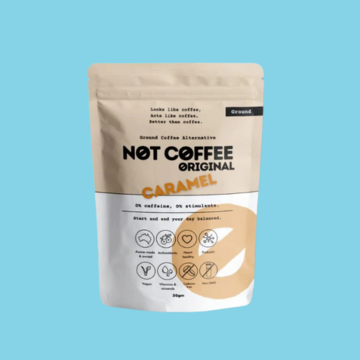Do you ever feel bloated or uncomfortable after eating? Our health experts have put together a range of possible causes and natural remedies to help you understand what might be going on, and what to do about it.
Dairy dilemma
Dairy has been known to cause discomfort after eating. Symptoms of dairy intolerance usually begin within 30 minutes of eating dairy foods, and can include bloating, wind, abdominal pain and diarrhoea. This intolerance is partly due to inadequate production of the enzyme lactase which digests the sugar (called lactose) found in dairy foods.
People who are sensitive to dairy products may find that taking a supplement containing a combination of enzymes will improve their ability to eat dairy foods without experiencing the characteristic symptoms of abdominal pain, bloating and diarrhoea. The most important enzymes are, firstly, lactase, to enhance the digestion of lactose, and then protease and lipase, which improve the digestion of other key components in dairy foods, namely protein and fats.
Identifying intolerance
Other foods that may trigger intolerance include wheat, gluten, nuts, soya, eggs and seafood. Try eliminating from your diet any food you suspect you may be intolerant to, and see if it improves how you feel. Note that bloating and discomfort caused by gluten intolerance may take longer to reduce, even once the trigger foods are removed. You should also seek assistance from your healthcare practitioner to rule out coeliac disease and other more serious disorders.
Stress less
Your digestive system is one of the first parts of your body to suffer as a result of stress. Avoid over-eating or eating on the run; a relaxed, unhurried environment is the ideal one for optimal digestion. Prolonged exposure to stress can both cause and worsen a wide variety of gut disorders, including gastric reflex, non-ulcerative dyspepsia (indigestion), irritable bowel syndrome (IBS), diarrhoea, constipation and flatulence. In fact, it is now well established that the two most prevalent gastrointestinal disorders – indigestion and IBS – are closely linked to chronic stress and anxiety.
Beneficial bacteria
The trillions of gut-friendly probiotic bacteria that are present in your intestines perform important digestive functions, as well as supporting immunity and mental health. These probiotic bacteria work by: providing an environment that is conducive to the absorption of food by maintaining a healthy pH; preventing the growth and development of harmful bacteria; and working with the body to both produce and absorb several vitamins, including vitamin B12 and folate.
Probiotic bacteria may be disrupted by the use of certain medications, and taking probiotic supplements may address symptoms of flatulence, diarrhoea and constipation by helping to rebuild strong and healthy probiotic populations in the gut. When choosing the right probiotic for your needs, look for a formula containing multiple strains of bacteria; this will be more likely to benefit your entire gut because different species perform different actions, and therefore favour different sections of the gut.
Enzyme insights
Digestive enzymes are essential for the breakdown of carbohydrates, fats and proteins in the body. The secretion of digestive enzymes in the gut declines with age and during the body’s response to stress. Insufficient enzyme levels may lead to the presence of partially digested food in the gut, resulting in the development of symptoms such as indigestion, bloating, and flatulence, and gut disorders like food sensitivities and ‘leaky gut’ syndrome.
Supplementation with digestive enzymes may help to alleviate gut disorders which involve impaired digestion. One recent study, which investigated the effect of a digestive enzyme supplement in both optimal and impaired digestive conditions, found that the addition of the supplement significantly improved the breakdown and absorption of carbohydrates and proteins, compared to a control treatment where no digestive enzyme supplement was added.
Naturopath Robert McIlroy explains, “We are not necessarily what we eat, but what we can digest and absorb from what we eat. Improved digestion through supplementation with microbial sourced enzymes should be a part of any health program.” Taking a digestive enzyme supplement can help ensure foods are broken down completely. Even people who have experienced digestive problems for long periods of time find that a continuing course of digestive enzymes helps to eliminate bloating and other digestive symptoms, as well as increasing their energy levels and even boosting immunity.

